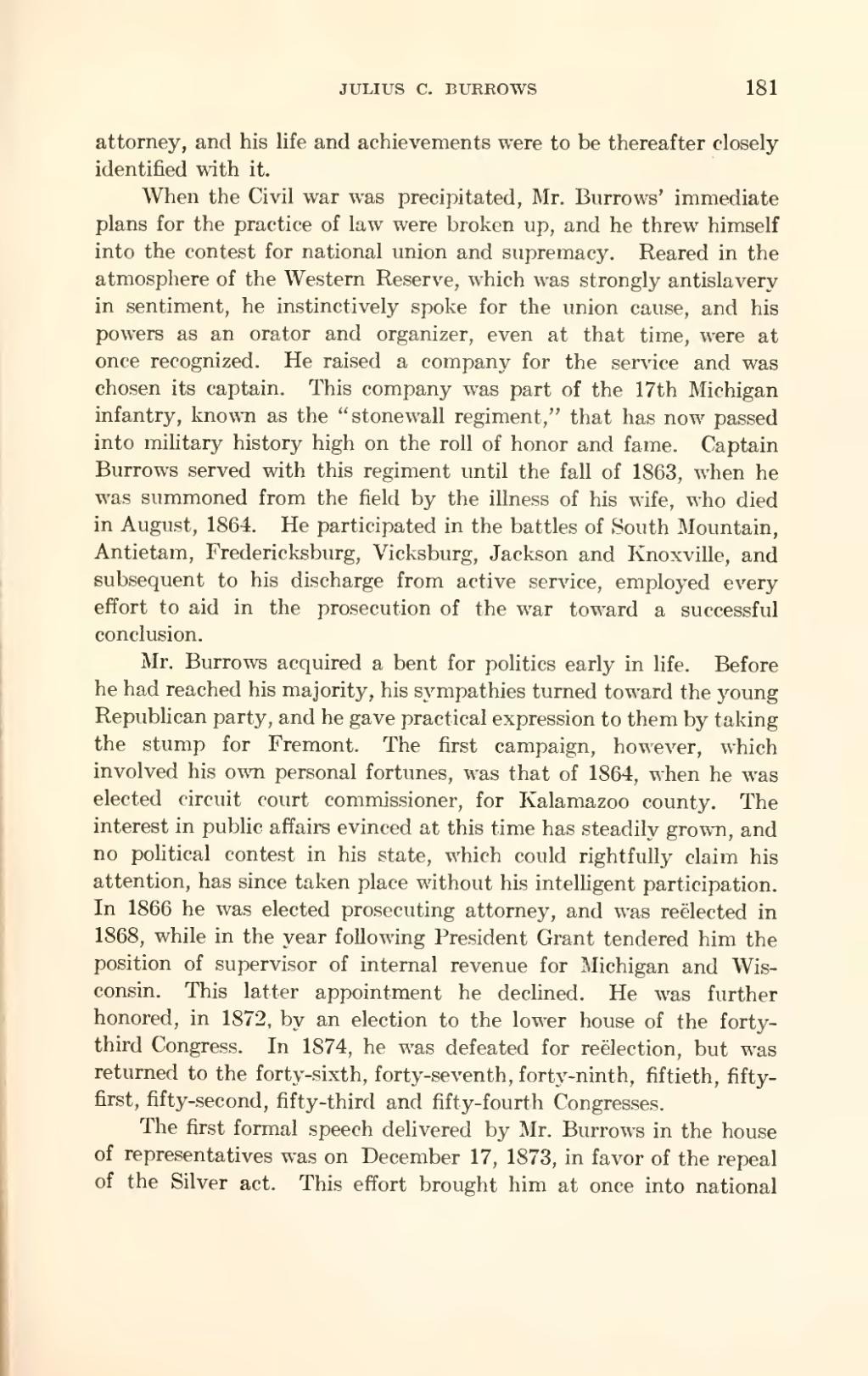attorney, and his life and achievements were to be thereafter closely identified with it.
When the Civil war was precipitated, Mr. Burrows' immediate plans for the practice of law were broken up, and he threw himself into the contest for national union and supremacy. Reared in the atmosphere of the Western Reserve, which was strongly antislavery in sentiment, he instinctively spoke for the union cause, and his powers as an orator and organizer, even at that time, were at once recognized. He raised a company for the service and was chosen its captain. This company was part of the 17th Michigan infantry, known as the "stonewall regiment," that has now passed into military history high on the roll of honor and fame. Captain Burrows served with this regiment until the fall of 1863, when he was summoned from the field by the illness of his wife, who died in August, 1864. He participated in the battles of South Mountain, Antietam, Fredericksburg, Vicksburg, Jackson and Knoxville, and subsequent to his discharge from active service, employed every effort to aid in the prosecution of the war toward a successful conclusion.
Mr. Burrows acquired a bent for politics early in life. Before he had reached his majority, his sympathies turned toward the young Republican party, and he gave practical expression to them by taking the stump for Fremont. The first campaign, however, which involved his own personal fortunes, was that of 1864, when he was elected circuit court commissioner, for Kalamazoo county. The interest in public affairs evinced at this time has steadily grown, and no political contest in his state, which could rightfully claim his attention, has since taken place without his intelligent participation. In 1866 he was elected prosecuting attorney, and was reelected in 1868, while in the year following President Grant tendered him the position of supervisor of internal revenue for Michigan and Wisconsin. This latter appointment he declined. He was further honored, in 1872, by an election to the lower house of the forty-third Congress. In 1874, he was defeated for reelection, but was returned to the forty-sixth, forty-seventh, forty-ninth, fiftieth, fifty-first, fifty-second, fifty-third and fifty-fourth Congresses.
The first formal speech delivered by Mr. Burrows in the house of representatives was on December 17, 1873, in favor of the repeal of the Silver act. This effort brought him at once into national

